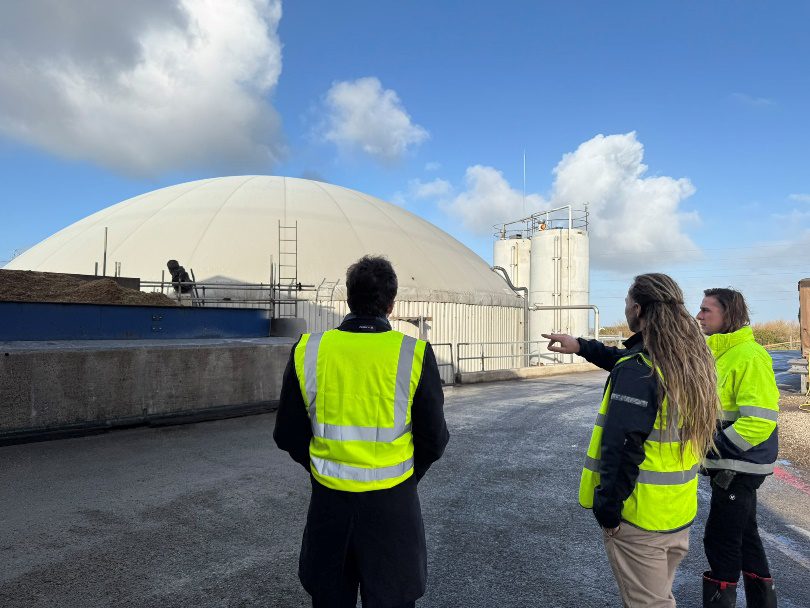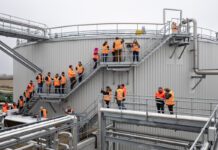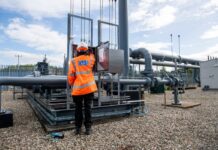
Last week, Noah Law MP spoke to industry guests at the Eden Project about the need for Government to ensure biogas meets its potential in delivering Britain’s clean energy needs. The local MP for St Austell and Newquay had previously visited the Fraddon anaerobic digestion plant operated by Material Change in Higher Fraddon, St Columb.
Commissioned in 2014, Fraddon Biogas is Cornwall’s leading AD plant, converting organic waste from local farmers, bakeries and food and drink producers. The plant provides renewable gas and electricity for around 2,500 Cornish homes.
Speaking in a talk hosted by former Environment Minister and current chair of IFEAA George Eustice at the Eden Project following the visit, Mr Law said: “I recently visited Fraddon Biogas, where organic waste from local farms and food producers is being turned into renewable energy and biofertiliser. This is a prime example of how biogas not only helps tackle climate change but also benefits the local economy and supports sustainable farming. However, we need the Government to act swiftly in removing the barriers holding back this industry. I have requested a meeting with the Energy Minister to discuss how we can reform the UK Emissions Trading Scheme to recognise the environmental benefits of biomethane and address the regulatory hurdles that are stifling the growth of this vital sector.”
Johan Lourens, Commercial Manager, Material Change, was delighted to host Mr Law, who showed keen interest in their local waste-to-energy operations. “For Cornwall to process organic waste locally, industry support is crucial”, Mr Lourens said. “With his support, we hope that Cornwall’s waste-to-energy sector will continue to grow, enabling us to divert more waste from landfill and expanding our contribution to the UK’s decarbonisation and energy security targets.”
Fraddon Biogas is Cornwall’s sole gas-to-grid anaerobic digester. It is operated by Material Change on behalf of Generate Upcycle, owned by Generate Capital.
Mr Law was joined on this visit by representatives from the Anaerobic Digestion and Bioresources Association (ADBA), the UK trade body currently campaigning for government to make changes to key policies to help grow the sector and help it play its part in the UK’s Net Zero Transition.
ADBA Chair Chris Huhne said: “AD technology has become a cornerstone of sustainable waste management and renewable energy production. With the right policies, AD can help the government and the country as a whole reach its net zero and levelling up goals. Not only does AD significantly contribute towards reducing greenhouse gases emissions, it also helps cut household energy bills and offers green jobs across the country. Biogas really is the low regret solution the government must get behind to enable us to turn our organic waste into a valuable resource to power our homes, businesses and the wider economy.”
ADBA has recently published a report indicating that the use of biogas could cut the cost of meeting Britain’s net zero targets in 2050 by nearly £300 billion against official projections. These findings are the result of new analysis by BMA, drawing on the computer model used by Whitehall.
Concluding his speech, Noah Law MP emphasised the importance of supporting biogas production: “Unlocking the full potential of biogas could transform not just Cornwall because of our agricultural output and need for decentralised energy, but the whole country. If we tackle the barriers to growth in this sector, we can accelerate our path to net zero while creating green jobs and boosting energy security. The future of renewable energy is not just about wind turbines and solar panels—it’s also about harnessing the power of organic waste to generate the energy we need locally.”







